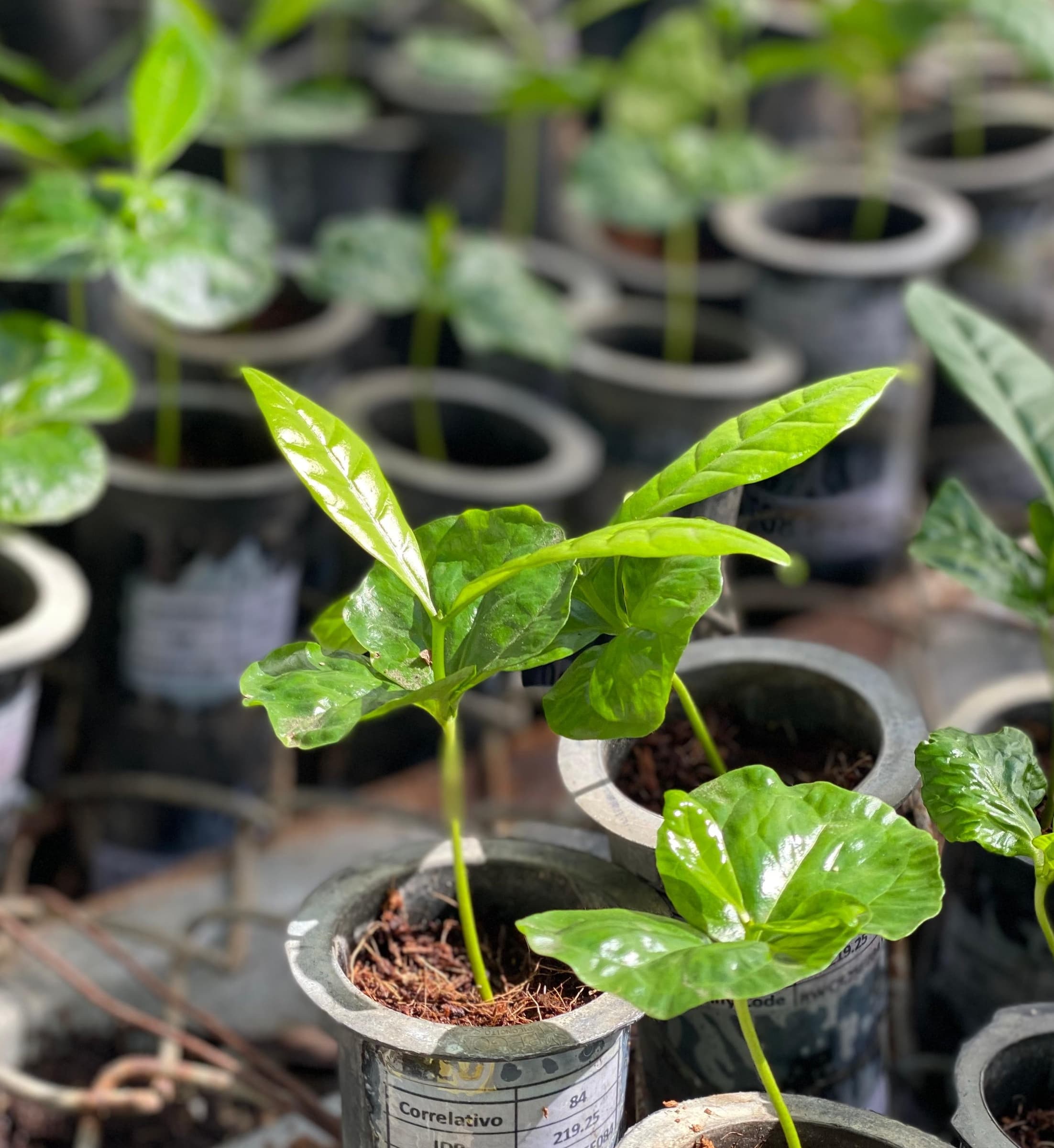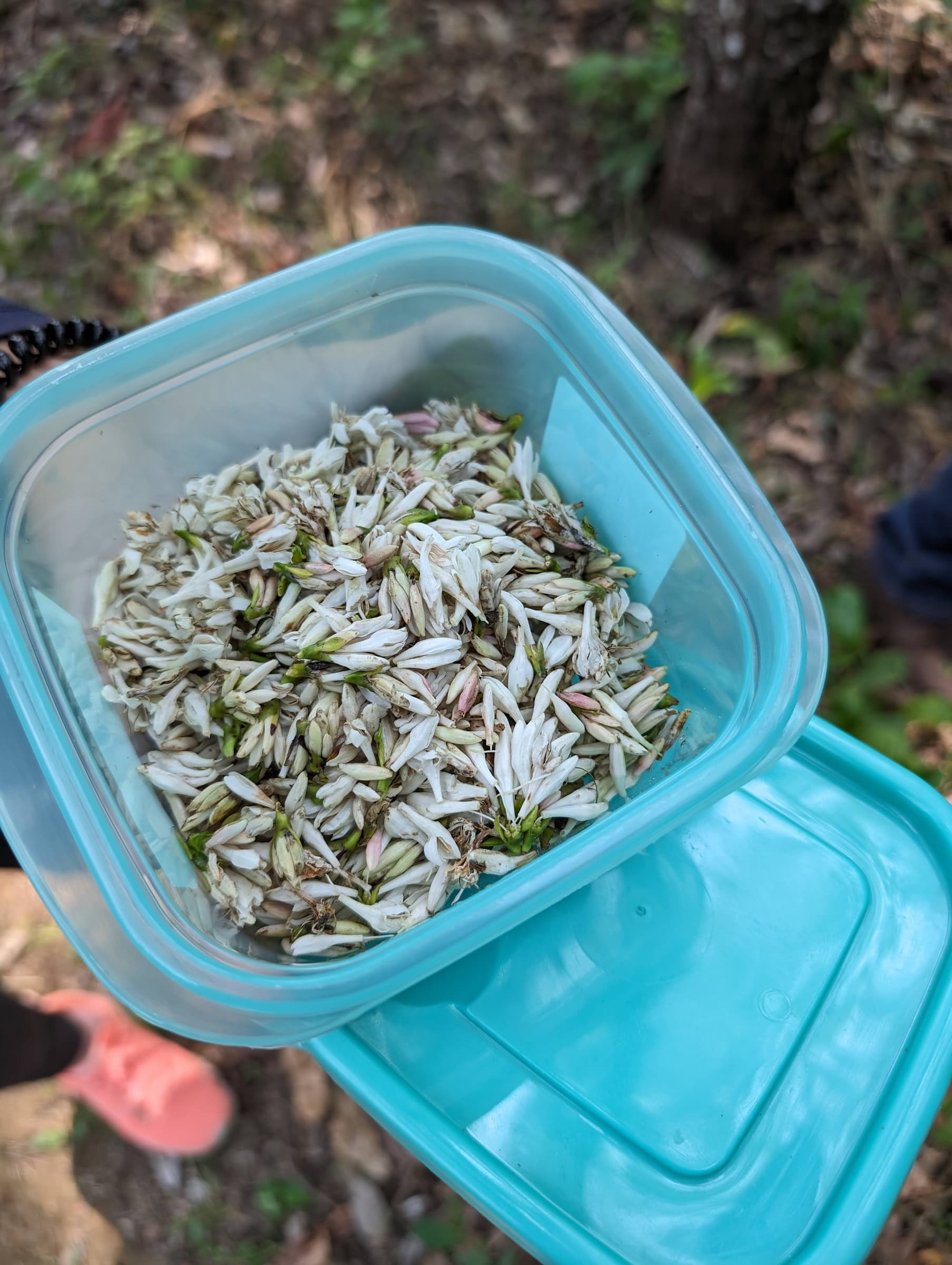Robusta breeding: a year later
One year into breeding for strengthened global robusta production, WCR celebrates first crosses and clonal propagation underway
World Coffee Research (WCR) has made significant strides in its robusta breeding program since initiating breeding activities in 2024. In early 2025, WCR successfully harvested seeds from individual trees used in its first round of crosses. These seeds were the result of carefully selected parental lines chosen to maximize the valuable genetic diversity from across different genetic groups, some of which was generously provided in an agreement with CIRAD. These crosses will bring together new and unique combinations of valuable genetics with a goal of generating high-performing, climate resilient varieties for many robusta-producing countries.
Following harvest, the seedlings were transferred to a specialized propagation facility, where they will be multiplied for eventual distribution to national partners in a new robusta global breeding network. By 2027, several thousand plantlets will be distributed to partners across the robusta breeding network for six-year performance trials to identify top-performing candidates for potential variety registration and future breeding.
Below: Robusta seedlings arrive at a specialized propagation facility for multiplication. For each of the 1,000 unique individuals, identical plantlets will be created for distribution to breeding trial sites located in Africa, Asia and Latin America. Genotyping is underway for quality control. The propagation process takes two years.


Robusta breeding program is born
In response to industry demand, WCR launched its robusta research and breeding efforts in 2023. By 2024, crosses were underway using elite parent plants. The robusta breeding program follows a three-stage process: creation of genetic variation, propagation and distribution of clones, and partner-led evaluation and selection.
Below: To initiate crosses in April 2024, WCR’s breeders collected pollen from selected plants (left), and then transferred the pollen onto the emasculated flowers of mother plants (right). These controlled crosses resulted in the formation of new cherries, containing seeds with the combined genetics of both parents. The cherries were harvested in early 2025; the seeds were grown into seedlings and are now undergoing propagation/multiplication for distribution to breeding network partners.


A global alliance for robusta
WCR’s robusta breeding efforts are structured as a collaborative global network, modeled on the Innovea Global Coffee Breeding Network for arabica. The robusta network brings together national coffee institutes from key producing countries, each of which will contribute to and benefit from shared breeding resources, performance data, and modern breeding technologies. Since 2024, multiple countries have confirmed their intention to participate in the network, including Ghana, Uganda, and Vietnam. The network will be officially launched in November 2025.
Each partner country will receive WCR’s first setof robusta clones for installation in research trials in 2027, along with access to cutting-edge breeding tools and opportunities to contribute to a shared global effort to improve robusta productivity, resilience, and farmer profitability.
The goal is to ensure that future robusta varieties are not only resilient to climate stressors but also well-adapted to local growing conditions. Partners will have the ability to select high-performing clones and integrate them into their own breeding programs, helping to modernize robusta production across diverse origins.
Why robusta matters
Robusta now makes up 40% of global coffee production, up from 25% in the early 1990s. Once overshadowed by arabica, robusta is becoming increasingly vital due to rising global demand—177 million 60-kg bags of coffee were consumed worldwide last year (ICO, April 2024)—and its climate resilience and high productivity. Read more about Robusta in this review article.